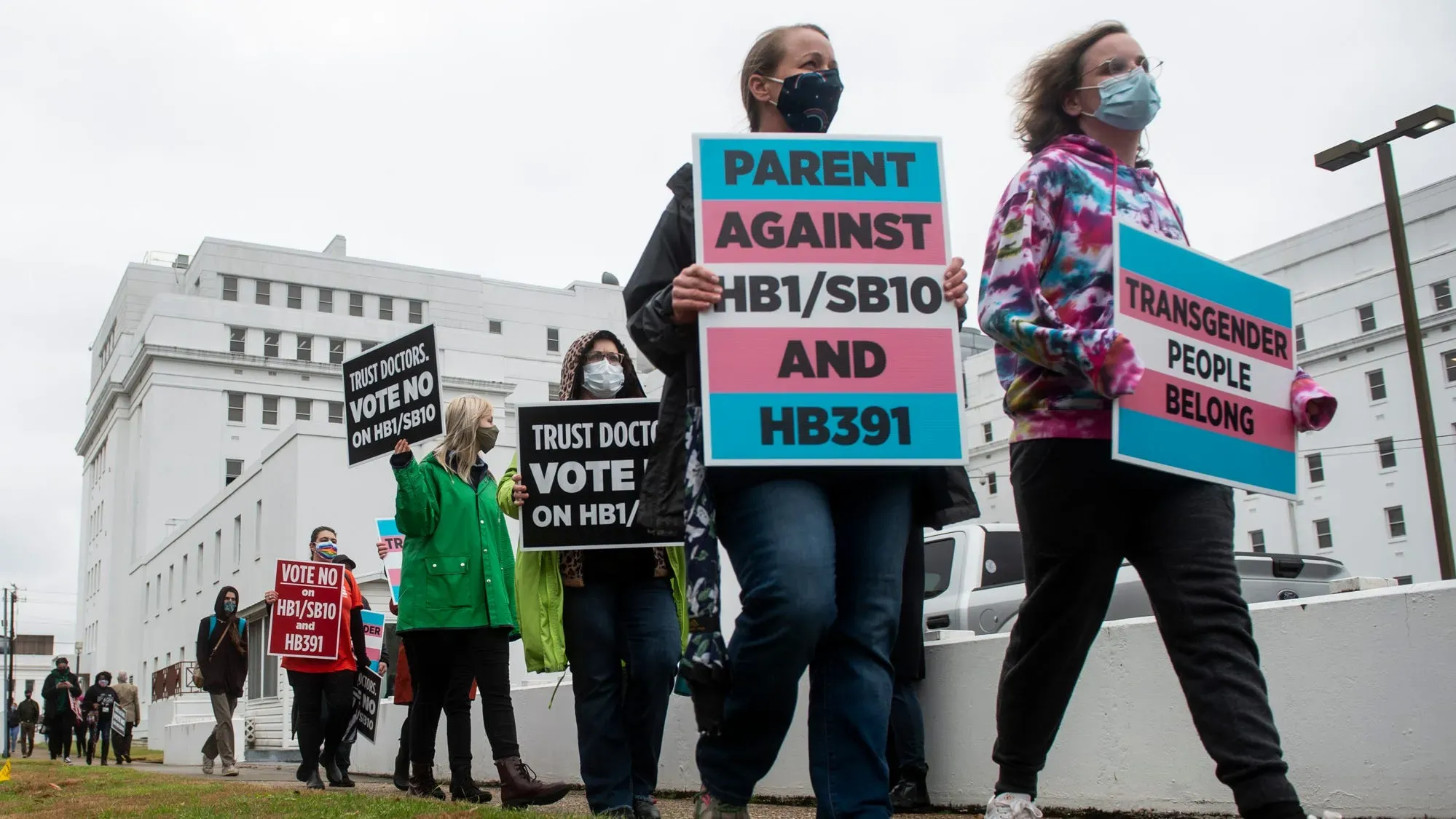Transgender Athlete Ban Massachusetts: Legislation Update

The recent push for a transgender athlete ban in Massachusetts has ignited heated discussions around student-athlete participation and gender identity in sports. This legislation, advancing through the Massachusetts House of Representatives, aims to prevent public schools from allowing student-athletes to compete on teams that differ from their sex assigned at birth. Advocates for transgender rights express concern over the implications of this ban, highlighting its potential to exclude transgender individuals from sports and undermine LGBTQ sports inclusion. Moreover, critics warn that the decision reflects broader challenges in Massachusetts sports policy, especially as the debate around the participation of transgender youth in athletics continues to unfold nationwide. As lawmakers prepare to review the policy, the focus remains on safeguarding the rights and well-being of all student-athletes, regardless of their gender identity.
The recent legislative developments surrounding the restriction on transgender participants in athletic programs in Massachusetts have sparked significant debate. This proposed ban, intended to limit student participation based on their birth sex, raises critical questions about the inclusivity of competitive sports and the recognition of gender diversity. Supporters and opponents of the bill are divided, reflecting broader societal tensions regarding gender identity in sports and the rights of LGBTQ individuals. As scrutiny intensifies, policymakers are urged to consider how state regulations align with evolving perspectives on fairness and equality in athletic participation. Ultimately, the Massachusetts sports community faces a pivotal moment in determining the future of equitable participation for all athletes.
Overview of the Massachusetts Transgender Athlete Ban
Recently, the Massachusetts House of Representatives passed a provision that would prevent public schools from allowing male student-athletes to compete on female sports teams, and vice versa. While the provision does not explicitly mention transgender students, it is undoubtedly at the center of a broader debate surrounding transgender rights and participation in sports. This policy is a reflection of ongoing discussions about gender identity in sports and the inclusion of all athletes, regardless of their gender identity, in competitive environments in Massachusetts.
The decision to enact such a ban has raised significant concerns among LGBTQ advocacy groups who argue that this legislative move undermines the rights of transgender individuals and discriminates against their athletic participation. They argue that a student’s ability to compete in sports should not be dictated by outdated perceptions of gender but should instead consider individual identity. As discussions continue, the potential for further implications on Massachusetts sports policy looms large, affecting countless student-athletes throughout the state.
Frequently Asked Questions
What is the transgender athlete ban in Massachusetts about?
The transgender athlete ban in Massachusetts is a legislative proposal that would prohibit public schools from allowing student-athletes to participate on teams of the opposite sex. Although it does not specifically target transgender students, it raises significant concerns regarding transgender rights in sports and the inclusion of LGBTQ individuals in athletics.
How does the proposed Massachusetts sports policy affect transgender student-athletes?
The proposed Massachusetts sports policy restricts transgender student-athletes from competing on the teams that align with their gender identity. This ban has sparked a national debate about student-athlete participation and the rights of transgender individuals within the realm of sports.
What is the role of the Massachusetts Department of Elementary and Secondary Education (DESE) in the transgender athlete ban?
The Massachusetts Department of Elementary and Secondary Education (DESE) is tasked with reviewing the proposed transgender athlete ban and issuing a report on its findings. This review will analyze behavioral and physical health impacts on students and examine how other states address similar policies.
Who introduced the transgender athlete ban legislation in Massachusetts?
The transgender athlete ban legislation in Massachusetts was introduced by state Rep. John Gaskey as an amendment to a spending bill. This legislative move has been met with criticism from LGBTQ advocates who view it as an attack on transgender rights.
What are the potential consequences for schools that do not comply with the transgender athlete ban?
Schools that do not comply with the transgender athlete ban would risk forfeiting all games in which an athlete of the opposite sex participated. This provision raises concerns about the fairness and inclusivity of Massachusetts sports policy.
What do LGBTQ advocates say about the transgender athlete ban in Massachusetts?
LGBTQ advocates have expressed strong opposition to the transgender athlete ban in Massachusetts, arguing that it further marginalizes transgender individuals and contributes to disinformation campaigns against them. Organizations like MassEquality emphasize that the real danger comes from those who seek to harm the rights and existence of transgender individuals.
What is the current status of the transgender athlete ban proposal in Massachusetts?
As of now, the transgender athlete ban proposal has been approved by the Massachusetts House of Representatives but awaits review from the Department of Elementary and Secondary Education. Given the support for LGBTQ rights in the state, the likelihood of the ban being enacted remains uncertain.
How are national events influencing the discussion around the transgender athlete ban in Massachusetts?
The discussion around the transgender athlete ban in Massachusetts is heavily influenced by recent national events, including executive orders and lawsuits regarding transgender participation in sports. These events have heightened awareness and debate on transgender rights and LGBTQ sports inclusion across the nation.
| Key Point | Details |
|---|---|
| Massachusetts House Bill | Proposes to ban public school athletes from playing on teams of the opposite sex. |
| Delay in Implementation | Policy will not take effect until a review is conducted by the Department of Elementary and Secondary Education (DESE). |
| Lack of Specific Mention of Transgender Students | Despite no direct mention, the bill contributes to the national debate on transgender athletes in sports. |
| Amendments and Provisions | Amendments introduced: Rep. Ken Gordon proposes a review to assess impacts of the ban. |
| Compliance Consequences | Schools allowing athletes of the opposite sex would forfeit games. |
| Political Reactions | Mixed reactions from lawmakers; Gov. Healey supports LGBTQ rights and opposes the ban. |
| Ongoing National Conversation | Similar national actions and debates, including implications from the Trump administration’s policies. |
| Advocacy and Support | LGBTQ advocates express concern about the potential harm from such amendments. |
Summary
The recent debate around the transgender athlete ban in Massachusetts highlights the ongoing conflict regarding the participation of transgender students in sports. The Massachusetts House’s approval of language to deny public school athletes the right to compete on teams matching their gender identity has stirred significant reactions from lawmakers, advocates, and the public. As the state prepares for an official review, the discourse surrounding the transgender athlete ban in Massachusetts will continue to evolve, reflecting broader national discussions on inclusion and equality in sports.




